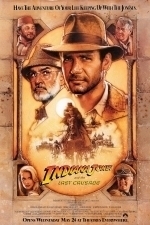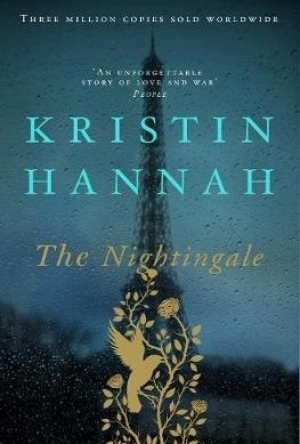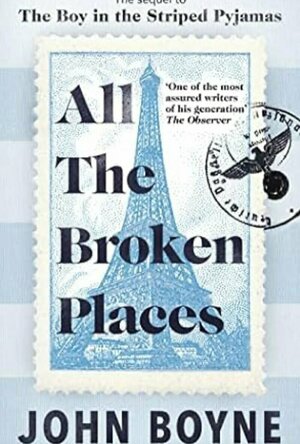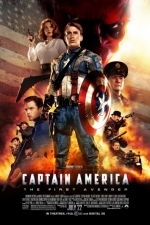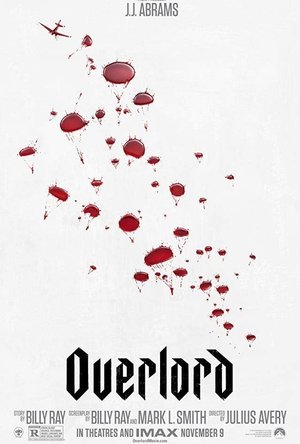Search
LeftSideCut (3776 KP) rated Indiana Jones and the Last Crusade (1989) in Movies
Jan 28, 2021
Returning to a much more balanced tone that the overly "cooky" Temple of Doom, the third Indiana Jones adventure gives Raiders of the Lost Ark some serious competition for best entry in the franchise (Raiders just about beats it for me based on the ratio of melting nazi face content).
The Last Crusade is a hugely entertaining movie from start to finish. It has a fantastic cast from the ever reliable Harrison Ford in the title role, to the convincingly menacing antagonist played by Julian Glover. Of course, Sean Connery is here for the ride this time around, as Indy's old man. The dynamic between Connery and Ford is great, and every scene with the two of them is cinema gold. Alison Doody makes for a welcome change with this films female protagonist (sort of), her character finally bucking the trend of typical love interest and having some depth, and a hell of a mean streak. Its nice to see John Rhys-Davies return from his ToD absence, and River Phoenix makes for an extremely memorable young Indiana in the movies opening flashback scene - on the subject of that scene, the transition from young Indy to Harrison Ford Indy is epic, thanks in part to another wonderful John Williams score, and is one of my highlights of the entire franchise!
The pacing is spot on - the over-two-hour runtime never once feels like a slog. The constant action is some of Spielberg's best work, and is suitably high octane. Everything in between boasts an engaging screenplay that develops all of the characters nicely, and the comedy elements are well done and sporadically placed, making the sillier moments genuinely funny (even the ridiculous Hitler scene)
All in all, The Last Crusade is a wonderful conclusion to the original trilogy, and is a genuinely fantastic adventure movie that stands toe to toe with the first film in its quality.
The Last Crusade is a hugely entertaining movie from start to finish. It has a fantastic cast from the ever reliable Harrison Ford in the title role, to the convincingly menacing antagonist played by Julian Glover. Of course, Sean Connery is here for the ride this time around, as Indy's old man. The dynamic between Connery and Ford is great, and every scene with the two of them is cinema gold. Alison Doody makes for a welcome change with this films female protagonist (sort of), her character finally bucking the trend of typical love interest and having some depth, and a hell of a mean streak. Its nice to see John Rhys-Davies return from his ToD absence, and River Phoenix makes for an extremely memorable young Indiana in the movies opening flashback scene - on the subject of that scene, the transition from young Indy to Harrison Ford Indy is epic, thanks in part to another wonderful John Williams score, and is one of my highlights of the entire franchise!
The pacing is spot on - the over-two-hour runtime never once feels like a slog. The constant action is some of Spielberg's best work, and is suitably high octane. Everything in between boasts an engaging screenplay that develops all of the characters nicely, and the comedy elements are well done and sporadically placed, making the sillier moments genuinely funny (even the ridiculous Hitler scene)
All in all, The Last Crusade is a wonderful conclusion to the original trilogy, and is a genuinely fantastic adventure movie that stands toe to toe with the first film in its quality.

Into That Darkness
Book
The biography of Franz Stangl, commandant of the Treblinka extermination camp - a classic and...
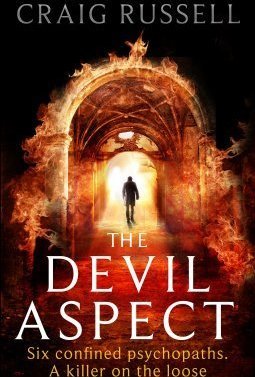
The Devil Aspect
Book
A terrifying novel set in Czechoslovakia in 1935, in which a brilliant young psychiatrist takes his...
gothic historical fiction thriller suspense murder
Kristy H (1252 KP) rated The Nightingale in Books
Aug 12, 2021
A touching portrayal of family and love during wartime
In 1930s France, Vianne says goodbye to her husband, Antoine, as he leaves to fight in the War. She's left behind to care for their daughter Sophie. Her younger sister, Isabelle, is in Paris with their father when the war starts. Reckless and impulsive, Isabelle wants to fight for her country, but their father sends her to stay with Vianne. But soon, after being betrayed by the young man who helped her find her way to Vianne's home, Isabelle is fighting for the Resistance. As for Vianne, she finds herself forced to house Nazi soldiers and make horrible sacrifices to protect her family.
This was an excellent and informational portrayal of World War II. It's haunting and heartbreaking and hopeful all together. Hannah tells the story of the War through our two sisters--looking at how they approach the war, along with their father. Vianne is the practical older sister, who worries for her safety and that of her daughter. Meanwhile, Isabelle has felt betrayed most of her life after the death of their mother and perceived abandonment by her older sister and father. This feeling spurs her to join the Resistance. Following their different paths allows us to see many varied sides of this awful and terrifying War. As you form attachments to the characters, the snatching of Jewish families and children and the concentration camps become even more stark and brutal--it's horrifying.
While I cannot really know what happened during this time period, this book seemed realistic and authentic to me. It made me cry. It's sad and yet somehow sweet at times. It's a vivid look at loss and love--for sisters, family, and your country.
I read this book as part of my new reading project--choosing books off my shelves based on their Goodreads rankings. This is my first book of the project, forcing me out of my comfort zone and to try books in genres I don't usually read!
This was an excellent and informational portrayal of World War II. It's haunting and heartbreaking and hopeful all together. Hannah tells the story of the War through our two sisters--looking at how they approach the war, along with their father. Vianne is the practical older sister, who worries for her safety and that of her daughter. Meanwhile, Isabelle has felt betrayed most of her life after the death of their mother and perceived abandonment by her older sister and father. This feeling spurs her to join the Resistance. Following their different paths allows us to see many varied sides of this awful and terrifying War. As you form attachments to the characters, the snatching of Jewish families and children and the concentration camps become even more stark and brutal--it's horrifying.
While I cannot really know what happened during this time period, this book seemed realistic and authentic to me. It made me cry. It's sad and yet somehow sweet at times. It's a vivid look at loss and love--for sisters, family, and your country.
I read this book as part of my new reading project--choosing books off my shelves based on their Goodreads rankings. This is my first book of the project, forcing me out of my comfort zone and to try books in genres I don't usually read!
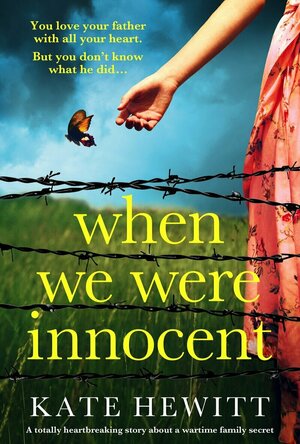
When We Were Innocent
Book
“Dad, you have to tell me the truth. Are you who they say you are? Because I know you can’t be....
ClareR (6062 KP) rated All the Broken Places in Books
Nov 4, 2023
Gretel Fernsby has a terrible secret that she’d rather others didn’t know. If you’ve read The Boy in the Striped Pyjamas, you’ll recognise the name: Gretel is the daughter of the camp Commandant of Auschwitz.
In short chapters, flashing between the past and the present, we learn about 91 year old Gretel’s past, and what happened when she and her mother escaped Germany.
Gretel is very well off, living in an expensive block of very large flats in central London. She doesn’t really have any friends, and seems to keep her true self from everyone including her son.
She is confronted with the memory of her younger brother, Bruno, when a boy of his age moves in to the downstairs flat. She realises that his father is violent, and his mother is abused. Gretel can’t let this kind of violence happen again.
The characters in this were superb. Whilst the first book had its problems with historical accuracy, I feel that this book centred more around trauma, guilt and shame. Gretel carries all of these things around with her forever. She feels culpable for what happened in the camp - even though she was both a child and female. In retrospect, she is able to see what was wrong with the nazi regime, but at the time would have been brainwashed. She wouldn’t have known a time where Jews and other “undesirable” minorities would have been treated any differently. The wonder is that she went on to learn that this was wrong. The trauma that she carries with her from the death of her brother, learning about what her father was guilty of, and occurrences in Paris, is lifelong.
From Gretel’s life experiences to those of her downstairs neighbour, everything is handled with compassion and tact. Again, it’s not perfect, but then neither are humans. And that is what this book shows above all: that we can learn from our mistakes if we are willing to do so.
In short chapters, flashing between the past and the present, we learn about 91 year old Gretel’s past, and what happened when she and her mother escaped Germany.
Gretel is very well off, living in an expensive block of very large flats in central London. She doesn’t really have any friends, and seems to keep her true self from everyone including her son.
She is confronted with the memory of her younger brother, Bruno, when a boy of his age moves in to the downstairs flat. She realises that his father is violent, and his mother is abused. Gretel can’t let this kind of violence happen again.
The characters in this were superb. Whilst the first book had its problems with historical accuracy, I feel that this book centred more around trauma, guilt and shame. Gretel carries all of these things around with her forever. She feels culpable for what happened in the camp - even though she was both a child and female. In retrospect, she is able to see what was wrong with the nazi regime, but at the time would have been brainwashed. She wouldn’t have known a time where Jews and other “undesirable” minorities would have been treated any differently. The wonder is that she went on to learn that this was wrong. The trauma that she carries with her from the death of her brother, learning about what her father was guilty of, and occurrences in Paris, is lifelong.
From Gretel’s life experiences to those of her downstairs neighbour, everything is handled with compassion and tact. Again, it’s not perfect, but then neither are humans. And that is what this book shows above all: that we can learn from our mistakes if we are willing to do so.
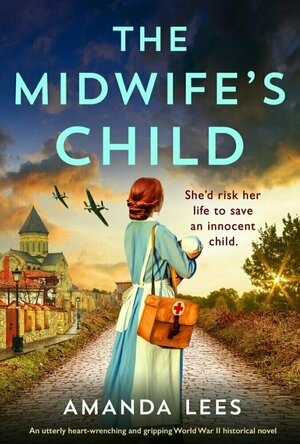
The Midwife's Child (WW2 Resistance Series #3)
Book
‘Save her,’ she begs, drawing her last, quavering breaths. ‘Save my baby. Find her father. And...
Ryan Hill (152 KP) rated Captain America: The First Avenger (2011) in Movies
May 9, 2019
"i'm just a kid from brooklyn"
"I'm just a kid from Brooklyn"
A rip-roaring homage to old fashioned serials and comic books. Joe Johnston somehow pulls off the tone and look, firmly planting me into the 1940's time period. As fantastical as it is I still feel the real world within the picture.
Protagonist Steve Rogers makes for an easily likable guy who at the start is a smaller guy, who stands up to bullies even if it means getting his ass beat. His dream is to serve his country and although not meeting physical requirements for the army, he proves the heart and courage to become the specimen of a super soldier syrum. With this experiment, Steve's size, strength and conditioning is greatly enhanced and becomes the face of WW2 propaganda. His desire to fight however gets him involved with the battle against a division of the Nazi's known as Hydra, headed by Johann Schmidt, the "Red Skull".
Red Skull is one of the best villians of the Marvel cinematic universe. I couldn't imagine him played by anyone other than Hugo Weaving who brings such gravitas and personality to the role. Red Skull is an experiment of the soldier syrum himself which gives him a certain connection to Rogers, but chooses to use his power for the service of himself and his evil desires. The film includes the element of Nazi fascination with science and experimentation, taking it a step further. Red Skull discovers other worldly magic, the Tesseract of Asgard, which he utilizes for the use of weaponry. Thus, blending historical events with an exciting dose of imagination. A Nazi more powerful than Hitler? That's pretty scary.
The action comes swift and mighty, combining the fleshy violence of war with creative comic book thrills. It's some of the most entertaining action I've ever seen. I love that the presence of Hitler can be felt even though he is not on screen. It seamlessly connects the future with the past, makes the looming threat of the entire world felt, and contains elements of other Marvel films past and present that only adds to the movie and never detracts. Tony Stark's father has a direct influence on Captain America which adds a layer to the proceeding films. Thor and Loki's place in future events are tied in perfectly. Steve's friendship with Bucky and presumed death is one of the emotional cores to the film that also plays into the sequels. Unbelievable.
Can I just mention the charming romance between Peggy and Steve Rogers? It's so natural and plays out over the duration of the film without anything ridiculous. When Peggy tears up as Steve is speeding toward the unkown in a downed plane, I lose it. I lose it every time. They never got that last dance and my heart is broken.
When Red Skull calls Steve a "simpleton with a shield" I'm like YES!! that's why I love him. I could be Steve Rogers. I could be Captain America. Well, not really, but he's one of the most relatable on screen super heroes. I'd even say he's the one I can see myself in the most. Consider me #TeamCap.
I must make mention of the wonderful musical score and songs written for the film. Very important piece to the puzzle. I listen to "Star Spangled Man" just about every time I take a walk. The costumes and production design deserve all the love in the world as well. Tommy Lee Jones is great and makes me laugh as usual. All performances are great. Points for finding a use for Captain America's vintage comic book costume and re-enacting the punch to Hitler's face from Captain America issue #1.
Who taught Cap how to fight like that though? Guess that's one of the perks of the syrum too.
A rip-roaring homage to old fashioned serials and comic books. Joe Johnston somehow pulls off the tone and look, firmly planting me into the 1940's time period. As fantastical as it is I still feel the real world within the picture.
Protagonist Steve Rogers makes for an easily likable guy who at the start is a smaller guy, who stands up to bullies even if it means getting his ass beat. His dream is to serve his country and although not meeting physical requirements for the army, he proves the heart and courage to become the specimen of a super soldier syrum. With this experiment, Steve's size, strength and conditioning is greatly enhanced and becomes the face of WW2 propaganda. His desire to fight however gets him involved with the battle against a division of the Nazi's known as Hydra, headed by Johann Schmidt, the "Red Skull".
Red Skull is one of the best villians of the Marvel cinematic universe. I couldn't imagine him played by anyone other than Hugo Weaving who brings such gravitas and personality to the role. Red Skull is an experiment of the soldier syrum himself which gives him a certain connection to Rogers, but chooses to use his power for the service of himself and his evil desires. The film includes the element of Nazi fascination with science and experimentation, taking it a step further. Red Skull discovers other worldly magic, the Tesseract of Asgard, which he utilizes for the use of weaponry. Thus, blending historical events with an exciting dose of imagination. A Nazi more powerful than Hitler? That's pretty scary.
The action comes swift and mighty, combining the fleshy violence of war with creative comic book thrills. It's some of the most entertaining action I've ever seen. I love that the presence of Hitler can be felt even though he is not on screen. It seamlessly connects the future with the past, makes the looming threat of the entire world felt, and contains elements of other Marvel films past and present that only adds to the movie and never detracts. Tony Stark's father has a direct influence on Captain America which adds a layer to the proceeding films. Thor and Loki's place in future events are tied in perfectly. Steve's friendship with Bucky and presumed death is one of the emotional cores to the film that also plays into the sequels. Unbelievable.
Can I just mention the charming romance between Peggy and Steve Rogers? It's so natural and plays out over the duration of the film without anything ridiculous. When Peggy tears up as Steve is speeding toward the unkown in a downed plane, I lose it. I lose it every time. They never got that last dance and my heart is broken.
When Red Skull calls Steve a "simpleton with a shield" I'm like YES!! that's why I love him. I could be Steve Rogers. I could be Captain America. Well, not really, but he's one of the most relatable on screen super heroes. I'd even say he's the one I can see myself in the most. Consider me #TeamCap.
I must make mention of the wonderful musical score and songs written for the film. Very important piece to the puzzle. I listen to "Star Spangled Man" just about every time I take a walk. The costumes and production design deserve all the love in the world as well. Tommy Lee Jones is great and makes me laugh as usual. All performances are great. Points for finding a use for Captain America's vintage comic book costume and re-enacting the punch to Hitler's face from Captain America issue #1.
Who taught Cap how to fight like that though? Guess that's one of the perks of the syrum too.
Chris Sawin (602 KP) rated Inglourious Basterds (2009) in Movies
Jun 21, 2019 (Updated Jun 22, 2019)
It's the middle of World War II and France is overrun with Nazis. A group of Jewish-American soldiers is making a name for themselves as, "The Basterds," as they have the full intention of scalping each and every Nazi involved in the Third Reich. The Basterds soon become a real nuisance to The Fuhrer as their reputation strengthens and fear spreads like wildfire amongst the Nazis. Shosanna Dreyfus, a French-Jew whose family was killed by the Nazis, now owns a movie theater that catches the eye of Joseph Goebbels and his new film. The smaller, more private theater gets handpicked by Fredrick Zoller, a Nazi war hero and star of Goebbels film Nation's Pride, for the premiere of his new film. As the premiere becomes an intimate gathering of the Nazis, including the most important people of the Third Reich, The Basterds realize this may be their chance to end this war once and for all.
Inglourious Basterds had the potential to be one of the greatest films of the year. It's the first full-length film from Quentin Tarantino since Death Proof and his films from the past 12 years have escalated him into being one of the most well-respected filmmakers of our time. That along with an incredibly strong cast led by Brad Pitt and the fact that the film took place during World War II had me incredibly excited for the film. I'm a fairly big admirer of most of Tarantino's previous works and there's something about World War II and Nazis that I've always found fascinating. The final product was still good, but just didn't wind up meeting my expectations.
The concept of Inglourious Basterds is rather ingenious. A group of Jewish-Americans coming together and killing as many Nazis as they can. An ultimate form of revenge. Not only that, but an incredible sense of satisfaction washes over them while they partake in it. It's great and is pulled off rather flawlessly when we actually get to see The Basterds in action. As much as I love Tarantino's dialogue, it just seemed like the majority of the film was spent waiting around and talking about what was actually going to happen. Significant events still took place, but there's really only three or four scenes that come to mind that you could label as being exciting. Whether the film needed more of that is fully up to the viewer, but I'm under the impression that the film was a bit lacking in that department. Something else that should be mentioned, the film is not historically accurate. It's more of a World War II set in the Tarantino-verse kind of deal and is more of an alternate universe. Knowing that before seeing the movie helped a great deal in enjoying the film a bit more.
As enjoyable as Brad Pitt's performance as Lt. Aldo Raine was, I believe the real performance worth noting is Christoph Waltz's portrayal of Col. Hans Landa. He's somehow able to walk the thin line between being polite and charming to being a frightening lunatic rather flawlessly. Even as he closes in on The Basterds and their plans, he still manages to steal most of the scenes he's in (the discussion about comparing Jews to rats at the beginning of the film, the "That's-a-bingo!" conversation with Aldo, etc). Landa is just an incredible detective with a marvelous personality that might just be one of the greatest characters Tarantino has ever written.
Inglourious Basterds is an extremely solid effort from Tarantino. The dialogue is definitely up to Tarantino's standard greatness, the performances are quite incredible, and the story is an entertaining one even with it straying away from what actually happened during that time period. It's just a shame it didn't meet the expectations I had based on the trailers and how much I enjoyed the past few Tarantino films. The hard hitting action scenes are magnificent, but it felt like there were too few and far between. The best suggestion I could give would be to go into the film expecting nothing and I think you'll walk away satisfied.
Inglourious Basterds had the potential to be one of the greatest films of the year. It's the first full-length film from Quentin Tarantino since Death Proof and his films from the past 12 years have escalated him into being one of the most well-respected filmmakers of our time. That along with an incredibly strong cast led by Brad Pitt and the fact that the film took place during World War II had me incredibly excited for the film. I'm a fairly big admirer of most of Tarantino's previous works and there's something about World War II and Nazis that I've always found fascinating. The final product was still good, but just didn't wind up meeting my expectations.
The concept of Inglourious Basterds is rather ingenious. A group of Jewish-Americans coming together and killing as many Nazis as they can. An ultimate form of revenge. Not only that, but an incredible sense of satisfaction washes over them while they partake in it. It's great and is pulled off rather flawlessly when we actually get to see The Basterds in action. As much as I love Tarantino's dialogue, it just seemed like the majority of the film was spent waiting around and talking about what was actually going to happen. Significant events still took place, but there's really only three or four scenes that come to mind that you could label as being exciting. Whether the film needed more of that is fully up to the viewer, but I'm under the impression that the film was a bit lacking in that department. Something else that should be mentioned, the film is not historically accurate. It's more of a World War II set in the Tarantino-verse kind of deal and is more of an alternate universe. Knowing that before seeing the movie helped a great deal in enjoying the film a bit more.
As enjoyable as Brad Pitt's performance as Lt. Aldo Raine was, I believe the real performance worth noting is Christoph Waltz's portrayal of Col. Hans Landa. He's somehow able to walk the thin line between being polite and charming to being a frightening lunatic rather flawlessly. Even as he closes in on The Basterds and their plans, he still manages to steal most of the scenes he's in (the discussion about comparing Jews to rats at the beginning of the film, the "That's-a-bingo!" conversation with Aldo, etc). Landa is just an incredible detective with a marvelous personality that might just be one of the greatest characters Tarantino has ever written.
Inglourious Basterds is an extremely solid effort from Tarantino. The dialogue is definitely up to Tarantino's standard greatness, the performances are quite incredible, and the story is an entertaining one even with it straying away from what actually happened during that time period. It's just a shame it didn't meet the expectations I had based on the trailers and how much I enjoyed the past few Tarantino films. The hard hitting action scenes are magnificent, but it felt like there were too few and far between. The best suggestion I could give would be to go into the film expecting nothing and I think you'll walk away satisfied.
Gareth von Kallenbach (980 KP) rated Overlord (2018) in Movies
Jul 2, 2019
June 6, 1944 is the day known around the world as D-Day. This historic day marks the massive invasion of France by the allied forces in an effort to regain the country from the hands of Germany and push back the mighty German war machine all the way to Berlin. There have been many movies, books, and even videogames about the invasion over the years, so even the biggest war buffs might be wondering…really, they made yet another movie about D-Day? Well, the movie Overlord is quite a bit different from anything we have even seen previously. This movie is still about Operation Overlord but does not focus on the amphibious assault and instead shows us the missions leading up to it. Still not unique enough for you? Well, in Overlord we have all the battles, weaponry and Nazis of an excellent war film but in true J.J. Abrams fashion we now also have ZOMBIES!
Overlord focuses on a small unit tasked to take out a radio tower atop a church in a small village in France. The unit led by Corporal Ford (Wyatt Russell) and comprised of fresh out of paratrooper training Privates Boyce (Jovan Adepo), Rosenfeld (Dominic Applewhite) and Tibbet (John Magaro) are the only survivors of the doomed mission, but understand that if they do not complete it, then the allied invasion will be without crucial air support. During their trek to the church they meet a young French woman from the village named Chloe (Mathilde Ollivier) who offers to accompany them and assist in taking out the radio tower.
When the ragtag team reach the village, it immediately becomes apparent that everything is not as it should be. They go to Chloe’s house to formulate their plan and are greeted by howling and grunting coming from a closed door down the hallway. Chloe states that her aunt also lives in the house and is very “sick” after being taken to the church by a German soldier. At the same time, through a series of unfortunate events, Private Boyce discovers a brutal laboratory where other villagers are also being made “sick”.
For those who have seen the preview of Overlord and expect it to be war-based horror movie may be a little disappointed. While there certainly are horrific events, and plenty of scenes fighting the undead, Overlord is much more about the atrocities that the Nazi regime inflicted on innocents in an effort to purse the 1000-year-old Reich. J.J. Abrams spins a tale about how a small group of dedicated soldiers can pull out the impossible, even when there are hordes of Nazi soldiers and undead monsters standing in their way and does this in a spectacular and very believable way. The movie seems far more realistic than it should considering we are talking about zombie soldiers, but the events unfold as if they could actually happen. The movie is less The Walking Dead and more Saving Private Ryan, focusing not so much on the undead creatures themselves, but more the experimentation and mad-scientist efforts to create the ultimate super soldier. The story was outstanding and how they depicted everything from the soldiers to the zombies was top notch.
The movie is beautifully shot, standing tall next to other war epics such as Saving Private Ryan or Dunkirk. Even though the main plot of the film isn’t the invasion itself, it goes to astonishing detail to show how massive the invasion truly was. The opening scene is both epic and terrifying and the horrors of war are explored throughout. The acting was also superb, leading you to immediately care about the team and root for their success in the mission.
If it is not already clear, I absolutely loved this movie! They did a masterful job of blending the war/horror genre in such a way, that it never overly feels like one versus the other. It’s an action packed, edge of your seat thriller, with just enough jump scares included to remind you that it is billed as a horror movie. Overlord is a very unique take on an unfortunate time in history and it is one of the best movies I’ve seen in 2018.
Overlord focuses on a small unit tasked to take out a radio tower atop a church in a small village in France. The unit led by Corporal Ford (Wyatt Russell) and comprised of fresh out of paratrooper training Privates Boyce (Jovan Adepo), Rosenfeld (Dominic Applewhite) and Tibbet (John Magaro) are the only survivors of the doomed mission, but understand that if they do not complete it, then the allied invasion will be without crucial air support. During their trek to the church they meet a young French woman from the village named Chloe (Mathilde Ollivier) who offers to accompany them and assist in taking out the radio tower.
When the ragtag team reach the village, it immediately becomes apparent that everything is not as it should be. They go to Chloe’s house to formulate their plan and are greeted by howling and grunting coming from a closed door down the hallway. Chloe states that her aunt also lives in the house and is very “sick” after being taken to the church by a German soldier. At the same time, through a series of unfortunate events, Private Boyce discovers a brutal laboratory where other villagers are also being made “sick”.
For those who have seen the preview of Overlord and expect it to be war-based horror movie may be a little disappointed. While there certainly are horrific events, and plenty of scenes fighting the undead, Overlord is much more about the atrocities that the Nazi regime inflicted on innocents in an effort to purse the 1000-year-old Reich. J.J. Abrams spins a tale about how a small group of dedicated soldiers can pull out the impossible, even when there are hordes of Nazi soldiers and undead monsters standing in their way and does this in a spectacular and very believable way. The movie seems far more realistic than it should considering we are talking about zombie soldiers, but the events unfold as if they could actually happen. The movie is less The Walking Dead and more Saving Private Ryan, focusing not so much on the undead creatures themselves, but more the experimentation and mad-scientist efforts to create the ultimate super soldier. The story was outstanding and how they depicted everything from the soldiers to the zombies was top notch.
The movie is beautifully shot, standing tall next to other war epics such as Saving Private Ryan or Dunkirk. Even though the main plot of the film isn’t the invasion itself, it goes to astonishing detail to show how massive the invasion truly was. The opening scene is both epic and terrifying and the horrors of war are explored throughout. The acting was also superb, leading you to immediately care about the team and root for their success in the mission.
If it is not already clear, I absolutely loved this movie! They did a masterful job of blending the war/horror genre in such a way, that it never overly feels like one versus the other. It’s an action packed, edge of your seat thriller, with just enough jump scares included to remind you that it is billed as a horror movie. Overlord is a very unique take on an unfortunate time in history and it is one of the best movies I’ve seen in 2018.
